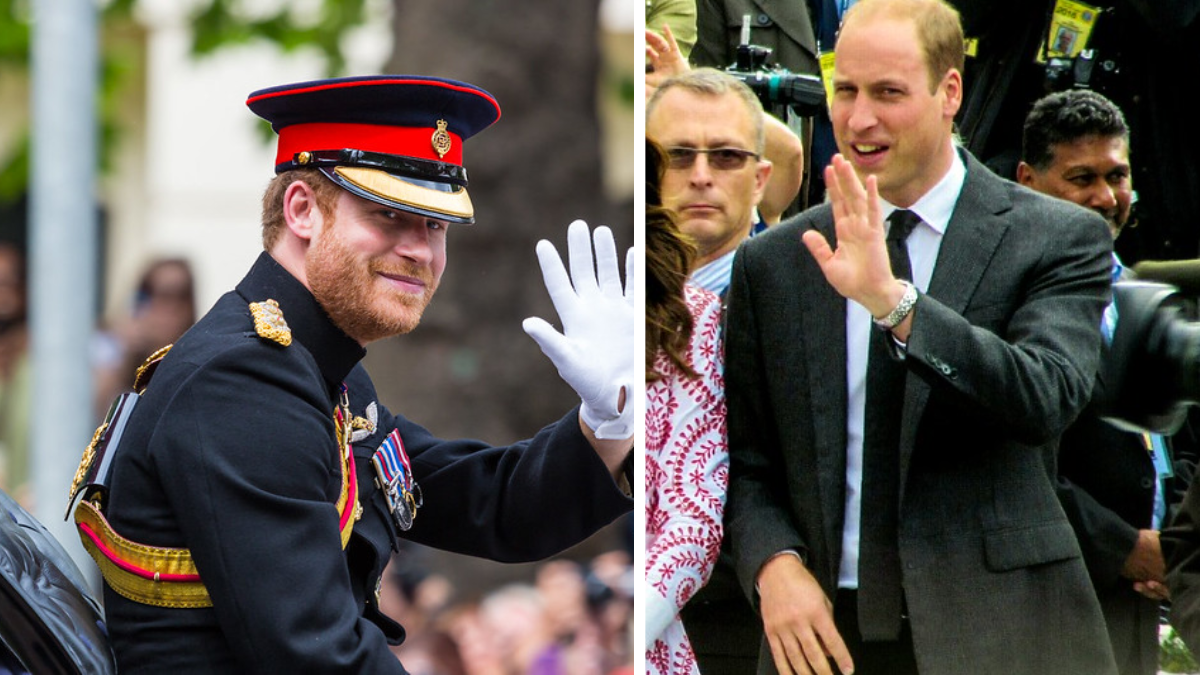In recent events surrounding the British royal family, the dynamics between King Charles (KC), Prince Andrew, and the rest of the royal household have caught the public’s attention. One key observation from this ongoing saga is how public backlash shapes royal decisions. The King’s handling of the Andrew situation—specifically his invitation to the annual Christmas walk—reveals a lot about the power of public opinion and how it influences royal decisions.

Public opinion has long played a significant role in the monarchy’s actions, but in the case of Prince Andrew, the stakes are higher than ever. Despite the controversies surrounding Andrew, including his alleged links to the Chinese spy scandal and his role in tarnishing the royal family’s reputation, King Charles was initially determined to invite his brother to the traditional Sandringham Christmas walk. This decision was met with public outrage, considering Andrew’s actions and the scrutiny the monarchy was already under.
However, after less than 48 hours of intense backlash, King Charles reversed his decision, removing Andrew from the public Christmas festivities. Not only was he excluded from the public walk, but he and his former wife, Sarah Ferguson (Fergie), were also not invited to the private Christmas lunch. Even their daughters, who had prior commitments, were noticeably absent.
This drastic shift raises questions about the monarchy’s internal decision-making process. Did King Charles make the right call, or does this response suggest a deeper issue within the palace?
Also More: Jealousy in the Monarchy Royals Crave William’s Spotlight
The Impact of Public Backlash on the Royal Family
The swift reversal of King Charles’ decision indicates that the monarchy is particularly sensitive to public opinion. This is not a good look for the royal family, especially when the king’s original stance seemed to be an attempt to appease his brother and keep the peace. Had King Charles acted more decisively earlier, especially before the Chinese spy scandal became public, it would have projected strength and leadership. Instead, the monarchy’s reactive nature suggests a lack of proactive decision-making.
The public’s influence is undeniable. When it comes to making difficult choices about family members who have damaged the royal brand, the backlash seems to play a central role. This raises important questions about the future of royal affairs and whether the monarchy can continue to operate with such a reactive strategy.
Harry’s Strategy: Bullying for Results?
The recent events surrounding King Charles and Prince Andrew shine a light on a broader strategy that some royal members have employed in the past: using public scrutiny and media scandals to force the monarchy’s hand. Prince Harry and Meghan Markle, for example, have long been accused of using media attacks to secure favorable outcomes. They likely saw the Andrew situation as a model for achieving their own goals.
Harry, knowing his father’s nature, understands that King Charles is not confrontational. The king tends to avoid conflict and has often been criticized for being an appeaser. This characteristic makes him vulnerable to public pressure, which Harry and Meghan have skillfully leveraged. By attacking the royal family publicly, they hoped to manipulate the situation in their favor, as they did when they secured titles for their children or when King Charles initially funded their security.
While this tactic may have worked to some extent, the royal family’s firm stance on certain issues shows that it is not always effective. Prince William, for instance, has remained steadfast in his position and has not allowed public pressure to dictate his actions.
Don’t Misse: Why the Wales Family Skipped the Royal Christmas Lunch
The Role of Prince William: A Pillar of Strength in the Face of Criticism
Prince William’s unwavering approach to both Prince Andrew and Prince Harry is a stark contrast to King Charles’ more reactive style. From the beginning, Prince William has been consistent in his position: both Andrew and Harry are out of the royal fold, and no amount of backlash or scandal will change that. William’s ability to stay silent, ignore the noise, and maintain a firm stance is why Harry and Meghan’s tactics have ultimately failed.
When the Sussexes accused the royal family of racism during their infamous Oprah interview, Prince William was the first royal to publicly defend the family. His statement, “We are very much not a racist family,” was a firm and decisive response. The Queen, recognizing his ability to stand tall in the face of criticism, entrusted him with formulating the palace’s official response. This speaks volumes about Prince William’s strength of character and his unyielding commitment to the monarchy.
Lessons for King Charles: Time for Decisive Leadership
While it is evident that public opinion plays a significant role in the decisions made by King Charles, it is time for the monarchy to adopt a more proactive approach. Leadership in the royal family must be based on strength and resolve, not fear of backlash. King Charles needs advisors who are not just reactive to public sentiment but who can guide him in making decisions that will secure the monarchy’s future.
Had King Charles acted decisively regarding Prince Andrew’s participation in public events earlier, it would have sent a strong message that the monarchy does not tolerate scandal or impropriety. Instead, the delay in making this decision undermines his leadership and reinforces the idea that the royal family is at the mercy of public opinion.





